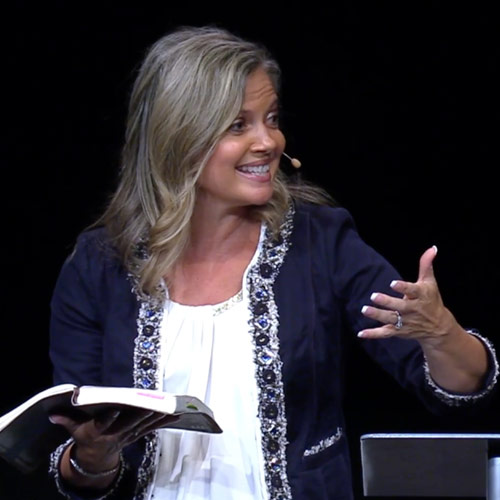The Proper Response
The fear of the Lord is the beginning of knowledge, but fools despise wisdom and discipline.
Proverbs 1:7
Last week we learned that our path to salvation begins when we possess a proper fear of God. That can only occur when we hold a proper view.
Too many of us have such a small view of God that we can’t recognize our need to fear Him. We don’t revere Him; instead we place Him on almost equal ground with ourselves. We offer Him a nod on Sunday mornings, then spend much of the rest of our time ignoring Him.
Yet when we visited God’s throne room with Isaiah, we witnessed his profound response to seeing God’s glory revealed. He was terrified.
We often describe the fear of the Lord with words like reverence, respect, and awe. I’ll admit I’ve used those words myself to explain its meaning. But while those are all elements of fearing God, I don’t believe they encompass it entirely. Strong’s concordance adds these definitions for the word translated “fear” in our Bibles:
“to be afraid, be frightened; to revere, respect; to be awesome, be dreadful, be feared” (Strong’s, 3772, p. 1512).
What Isaiah experienced reflects the rest of the definition. He witnessed something awesome, dreadful, utterly frightening, and he became completely undone.
Isaiah isn’t alone in his response. The apostle John, beloved disciple of Jesus and New Testament recipient of Christ’s saving grace, received a visit from his risen Lord while in exile on the island of Patmos.
I turned around to see the voice that was speaking to me . . . When I saw him, I fell at his feet as though dead. Then he placed his right hand on me and said: “Do not be afraid. I am the First and the Last. I am the Living One; I was dead, and behold I am alive for ever and ever! And I hold the keys of death and Hades.” Revelation 1:12, 17-18
God’s grace doesn’t make Him a cuddly teddy bear. When you finally see His Glory unleashed, you will tremble. Perhaps, like John, you will fall at his feet as though dead. But the beauty of grace is evident in Jesus’ response to John. To those who recognize God as wholly other and worthy of honor, to those who in reverent fear choose to submit their earthly lives to Him in repentance and receive by faith the sacrifice that Jesus made for them, to those Jesus lovingly responds, “Do not be afraid.” And we needn’t be.
The fear of the Lord leads to life: Then one rests content, untouched by trouble. Proverbs 19:23
Through repentance and faith in Jesus, fear of the Lord propels us into His safe embrace. He becomes our Rock. Our Strong Tower. Our Shelter in the storm. Our Rest. We become His, but the question remains: What next? How does one respond to such a great gift of grace?
Abraham, father of our faith, provides our example. Acts 7:2-4 tells us,
“The God of glory appeared to our father Abraham while he was still in Mesopotamia, before he lived in Haran. ’Leave your country and your people,’ God said, ‘and go to the land I will show you.’
So he left . . .”
At the beckoning of God, Abraham left his people and his home to go to a land he’d never seen. Why would he do that? How could he so easily and completely abandon everything to follow this God?
In the midst of a polytheistic culture that offered its worship to many gods, Abraham met the God of glory. Wisdom was born in him as Truth penetrated his heart, and he knew this was the One True God. Imagine the magnitude of such an encounter that would convince him that all he had ever been taught to believe was wrong. Like Isaiah, Abraham beheld something awesome that conceived in Him the fear of the Lord.
Yet this fear did not send him running to the hills. It sent him chasing after this God he realized he simply could not live without. Abraham’s fear of remaining distant from God surpassed his fear of approaching Him. He was compelled to follow, and the path led him smack dab into the blessing of God.
Abraham shares this experience with every great hero of faith recorded for us in Scripture.
- Moses met God through the flames of a burning bush, and his encounter led him to abandon the safety of his desert life and challenge Egypt’s Pharaoh on behalf of God’s people.
- Paul, guardian of Jewish law and zealous persecutor of the early church, came face to face with the glory of Christ on the road to Damascus. Blinded by the Light of Truth, he dropped to his knees in repentance and emerged from the encounter willing to follow Jesus to his death, suffering for the cause of the very One he had persecuted.
- Even the first Disciples shared this experience. They had been fishing on the Sea of Galilee when Jesus called to them, “Come, follow me.” How did they respond? At once they left their nets and followed him. Mark 1:18
They each responded to the revelation of God in their lives with the same reaction: they left behind all that they had known to follow. Beloved, what has changed, that God would seek any less of a response from us?
How have you responded to the revelation of God’s glory, dear one? Have you surrendered everything to follow your Lord and King? If not, He’s waiting.


